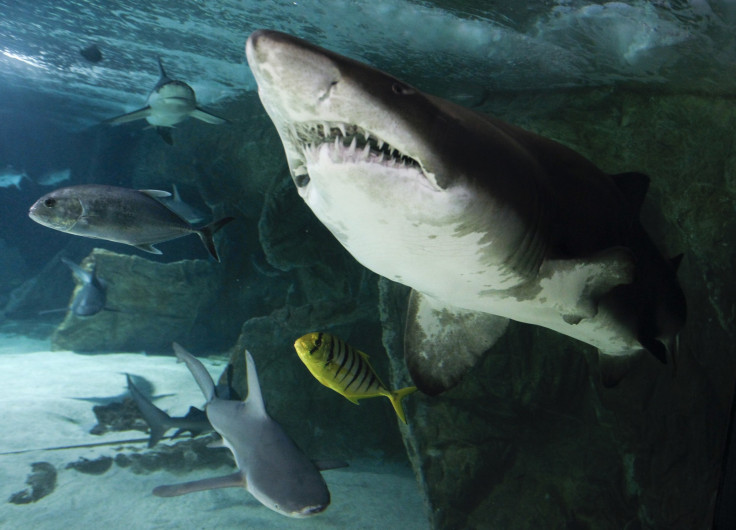Dubai Aquarium Sand Tiger Shark Artificial Insemination? Preservation Program Launched To Save Endangered Species

Scientists have warned that the sand tiger shark, considered a highly endangered species, could become extinct within the next three decades. But a new groundbreaking scientific program initiated in Dubai could help save the species, researchers said Wednesday.
The country's national aquarium has initiated the world's first-ever assisted breeding program for the species, reported Abu Dhabi newspaper the National. Researchers will study the sharks' breeding habits, and collect and store genes to protect their existence for at least 100 years.
Artificially inseminating females was not the plan just yet, scientists said, and their goal was to simply better understand the sharks while considering preservation of their genes as a type of "insurance policy." The program could have long-term impact on the preservation of other species as well, scientists said.
“We are confident that the techniques learnt in Dubai Aquarium and Underwater Zoo will eventually be applied to the conservation of sharks worldwide,” Paul Hamilton, general manager and aquarium curator, told the National.
The sharks, which have a reputation for attacking humans, have diminished significantly in recent years as fishermen have hunted them. Just 1,500 are believed to be left in the world; the species has been unable to naturally repopulate due to its uniquely slow reproductive cycle. Pups generally battle in the womb, with just one or two of the sharks surviving birth.
“It’s nature’s way of making sure that the shark that is born is fit and strong enough to survive in the wild,” said Hamilton. “Unfortunately, this is one of the reasons why the declining numbers in the wild are so hard to replenish."
The sand tiger shark is considered a protected species in the United States, Australia and New Guinea.
Tried smelling with a stuffy nose? That's how sharks feel about ocean acidification. http://t.co/X7nllYsp9K pic.twitter.com/5fXY5sM502
— Discovery (@Discovery) August 12, 2015The sharks' sperm will be frozen in liquid nitrogen at -320 degrees F, Jon Daly, a scientist and research consultant, told Gulf News. Scientists have been researching conservation of various other species through artificial insemination, including brown-banded bamboo sharks, as well as other animals, such as endangered dolphin species, cheetahs and giant pandas.
The program was considered groundbreaking because it focused on long-term preservation of the animals' genes. Aquarium officials are also hoping the program will raise awareness of shark conservation since various shark populations around the world are in danger of extinction.
© Copyright IBTimes 2024. All rights reserved.






















